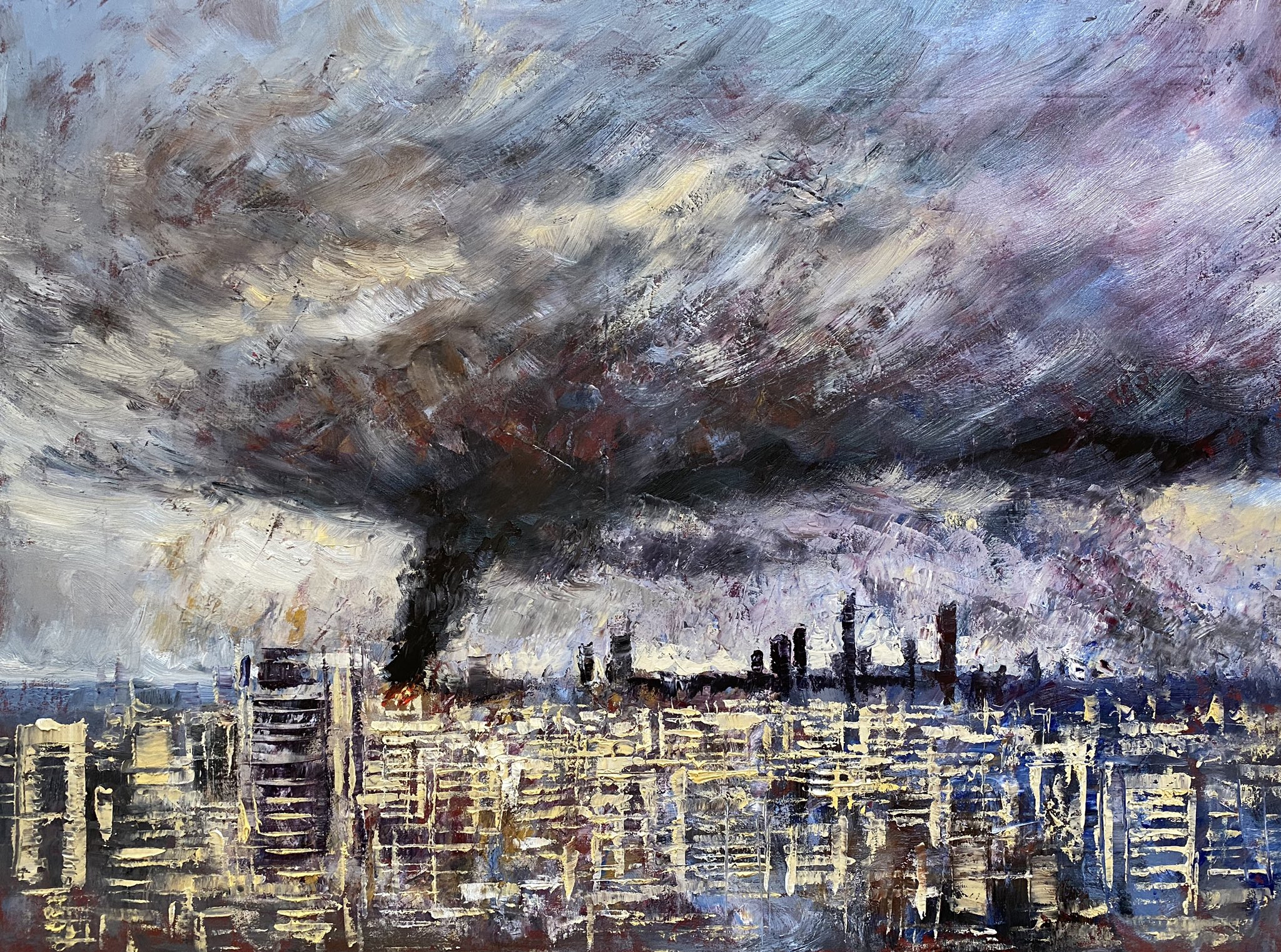“Toxic Beirut,” a web-based image by Tom Young.
The Lebanese political scene has a melancholy and desperate mood. The country suffered shock after shock, from the economic-financial meltdown to the COVID-19 pandemic, all the way to the explosion at its main port, a significant economic lifeline disabled when most needed. Most heartbreaking is watching and listening, even from afar, as Lebanon celebrates its centennial birthday while lacking the resources to extricate itself from its present predicament and being left to plead with foreign countries and economic institutions for humanitarian and economic assistance. Aside from the legitimate requests needed to address the consequences of the port explosion, Lebanon lacks the essential prerequisites of a functioning and legitimate state.
The port explosion derailed Lebanese plans for grandiose celebrations of Grand Lebanon’s centennial birthday. Even so, the Lebanese government went ahead with modest, though spiritless, celebrations, notwithstanding the French President's presence. The symptoms of a corrupt, bankrupt, and failed state overshadowed these celebrations.
The Lebanese state has indeed earned the moniker of a failed state, regardless of its centennial celebration, which exposes contradictions in substance and form. Indicative of this schizophrenia is how some Lebanese pleaded with the former colonial power that founded their Grand Lebanon to reassert its former Mandate, entrusted to Lebanese elites in 1943. But the Lebanese elites have failed this remit miserably.
The popular spontaneous behavior a few days after the August 4 explosion clearly demonstrates the failure. No politicians had dared to come inspect the scene, afraid that the people would attack or insult them. Contrast this with the arrival of French President Emmanuel Macron, who was warmly received with hugs by the survivors, families, houseless, and those angered by the government. The Lebanese government’s ambivalence, meanwhile, rang clear when neither president, prime minister nor other officials came to comfort the people and inspect the damage for themselves, proving once again how the government is disconnected from the people and why large segments of the population refuse to recognize its legitimacy.
The calls for France to reassert its Mandate were loud enough that some Lebanese seemed to abandon their annual folkloric tales about the independence they “snatched” from France in 1943. While frustration with their political class underscores their appeals to France, President Macron addressed this issue himself by telling protesters and politicians alike that the Lebanese had to help themselves before France could help them.
While indicators of a failed state abound, nothing says more than the people’s judgment. Protestors -- some of whom are recipients of humanitarian assistance -- have vocally expressed their distrust in the government by calling upon France, the U.S., and other prospective donors not to provide aid to government agencies, but instead deliver directly to the people, NGOs, and U.N. relief agencies.
When the U.S. recently imposed sanctions against two former Lebanese ministers, due to corruption-related accusations, the decision had instant believability on the Lebanese street, and by extension, the discussion about corruption became more tangible and less abstract.
While the two ministers support Hezbollah, their support went beyond the political into more material levels... a former Public Works Minister was involved in siphoning funds from government budgets to ensure that Hezbollah-owned companies won bids for Lebanese government contracts worth millions of dollars...The minister has also been implicated in the scandal surrounding the thousands of tonnes of explosives improperly kept at Beirut port for six years, which ultimately blew up…Lebanon’s Finance Minister was also accused of having attempted to shake down contractors to pay kickbacks and demanded that a percentage should be paid to him directly.
A major explosion in the port, followed by three fires almost a month later, unthinkable stories of corruption, unimaginable human and material losses -- all are contributing to an emotional state exhibiting the capitulation, depression, and cynicism widely dominating Lebanese conventional and social media. Illustrative of this depressive and cynical mood is the warm reception given to "Flash," a member of the Chilean rescue team, who had become an almost "folk hero" in the eyes of some activists and volunteers.
As coverage on the rescue endeavors flooded television screens and social media, the irony of the situation was not lost on the people. Journalist Luna Safwan honored Flash in a tweet, “When a dog...does a better job than a whole government,” and political science professor Karim Bitar noted, “Many Lebanese respect a dog, more so than their so-called representatives.” That it was the community who had taken the initiative to organize a rescue while the government remained silent speaks volumes about the state’s credibility. In fact, activists were only able to secure a crane for TOPOS by calling in for favors through contacts. As Lebanese officials celebrate Lebanon’s centennial birthday, its people instead celebrate Flash, a rising hero, and the activists and rescue team who acted when politicians turned a blind eye.
Edited excerpt from Elie Chalala's "Lebanon, Plundered, Blasted, Burning, 'Celebrates' in Irony the Centennial of Its Foundation," which appeared in Al Jadid Magazine, Vol. 24, No. 79, 2020.
Copyright © 2020 AL JADID MAGAZINE

